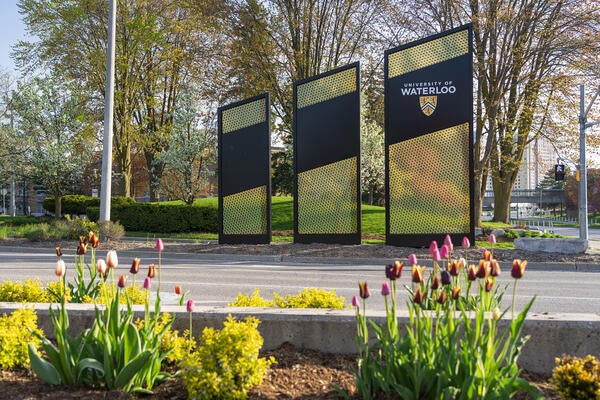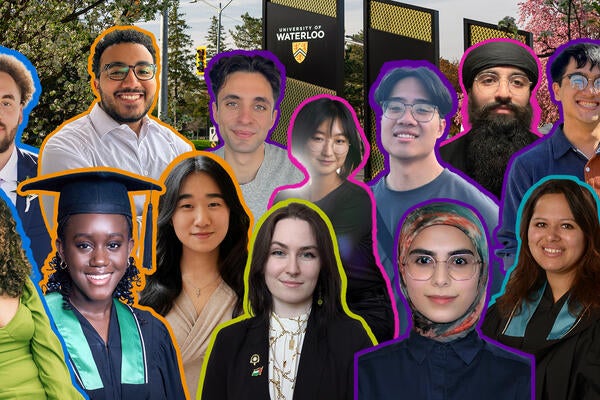WATERLOO, Ont. (Wednesday, Feb. 27, 2013) - A professor of quantum information science at the University of Waterloo’s Department of Physics and Astronomy and the Institute for Quantum Computing was selected to receive a prestigious E.W.R Steacie Memorial Fellowship from the Natural Sciences and Engineering Research Council of Canada (NSERC).
Professor Kevin Resch is an experimental physicist working in quantum information science, in particular the development of quantum sources of light and interferometric sensors. Technologies that harness the capabilities of quantum systems promise to revolutionize the way we process and share information and how we measure the world around us. Resch is one of six winners who each receive a research grant of $250,000 over two years.
"NSERC presents this respected award to promising young researchers whose work has the potential for major impact," said Feridun Hamdullahpur, president & vice-chancellor of Waterloo. "This fellowship will enable Professor Resch to focus on his research, so that Canada and the world may benefit from his innovation. On behalf of the university community, we are very proud of his accomplishment and congratulate him on this honour."
Together with his students and international collaborators, Resch has made several highly regarded contributions to quantum information science. He was a major contributor to the famous Danube experiment where entangled photons were distributed through the air over Vienna’s landmark river as a first step toward very long distance quantum cryptography. In a separate project, he clarified the role of quantum entanglement for making the best interferometric sensors nature allows. As well, his research on groundbreaking applications of chirped laser pulses, carefully stretched pulses of light, shows promise for non-invasive 3D imaging of biological tissue for medical applications.
“I am delighted that Kevin Resch's achievements have been recognized by NSERC for this prestigious award,” says Professor Raymond Laflamme, executive director of the Institute for Quantum Computing at the University of Waterloo. “Quantum information research promises to transform technology as we know it. Young researchers like him will continue to push the field forward and discover new technologies.”
Quantum information processing has the potential for breakthroughs in computing, communications and cryptography. It can also help us devise tools for navigating and controlling the nano-scale world. Sensors and actuators that operate according to quantum mechanics may achieve sensitivity, selectivity, precision and robustness far beyond their classical counterparts.
NSERC’s E.W.R. Steacie Memorial Fellowships honour the memory of Edgar William Richard Steacie, an outstanding chemist and research leader who made major contributions to the development of science in Canada during, and immediately following, World War II.
About the Institute for Quantum Computing (IQC)
The Institute for Quantum Computing (IQC) is a multidisciplinary scientific research institute at the University of Waterloo. Our research focusses on harnessing the quantum laws of nature to discover and develop powerful new technologies that will transform information technology and drive the 21st century economy. IQC research bridges theory and experiments in quantum computing, quantum communication and other quantum devices through the collaboration of over 200 computer scientists, engineers, mathematicians, physical scientists and students. Established in 2002, IQC also offers graduate and post graduate programs and educational outreach activities that inspire scientific discovery in the realm of quantum mechanics.








